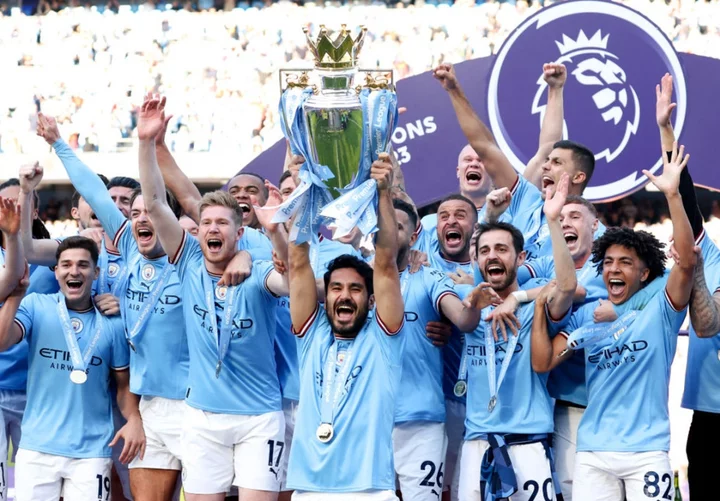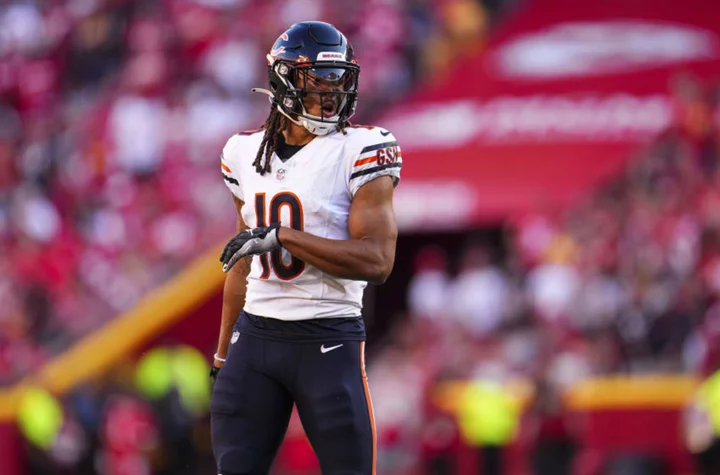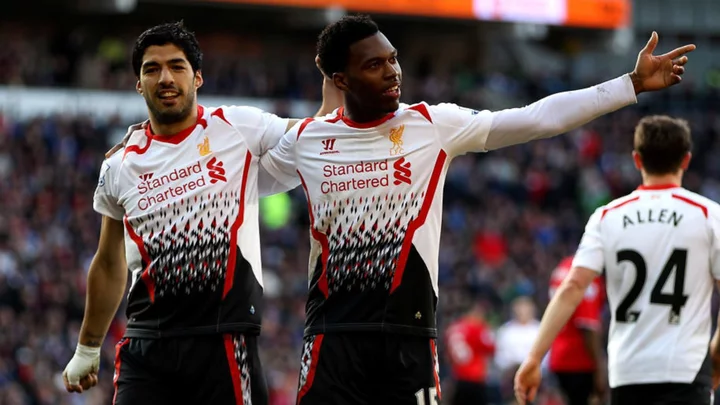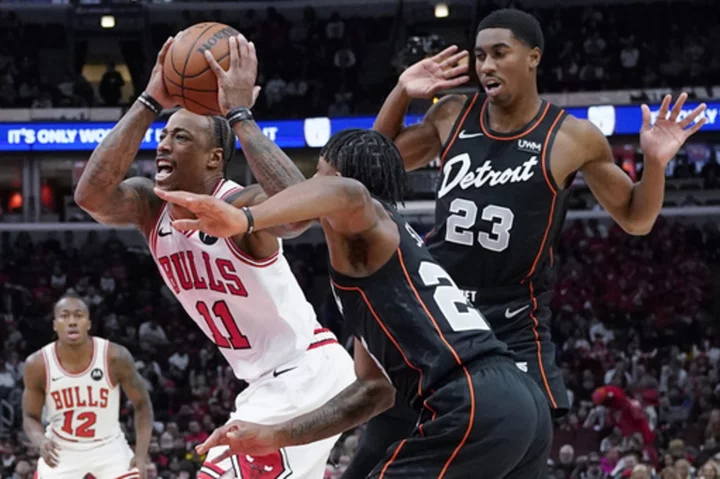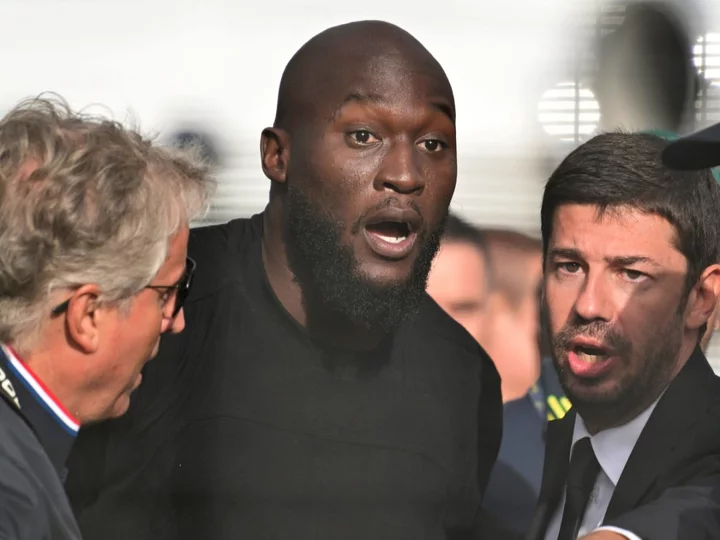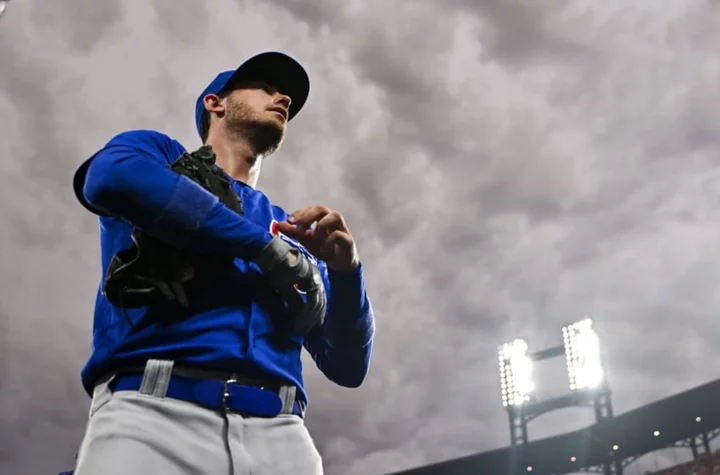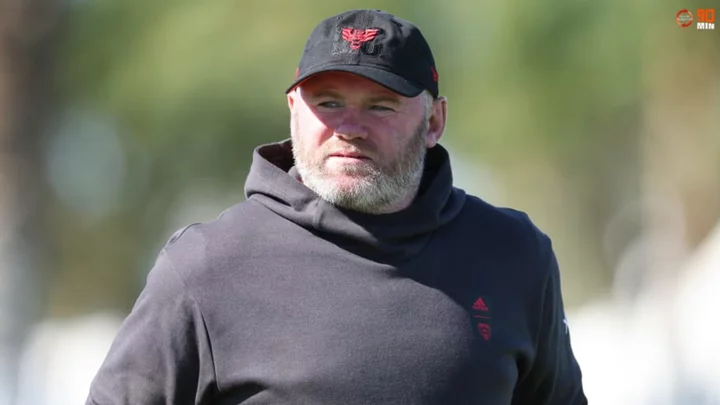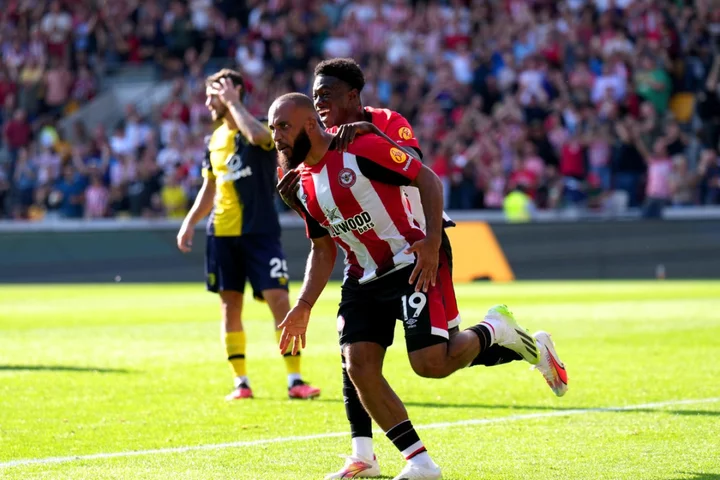Borussia Dortmund’s heartbreak was Bayern Munich’s normality. The last day of the Bundesliga season was astonishingly dramatic yet the outcome was very familiar. Bayern won their 11th consecutive German title.
In Italy, the record is seven in a row, secured by Juventus in the last decade. In France, it is also seven, the only seven times Lyon have won Ligue 1, all in the 2000s. In Spain, Real Madrid’s five consecutive titles in the late 1980s remains unrivalled.
In England, the magic number is altogether lower: just three. There have been six hat-tricks, but no team who has gone on to win four. It points to a general competitiveness across the old Division 1 and the Premier League that, over 135 years, no club has been able to sustain domination to such an extent.
It means that Manchester City could go into uncharted territory this season.
Their five predecessors offer warnings from history, in some cases comparisons that stretch back almost a century. The modern-day City obviously differ in some respects from Huddersfield (1923-26), Arsenal (1932-35), Liverpool (1981-84), Manchester United (1998-2001) and United again (2006-09). There are nevertheless common denominators, explanations why teams who had the potential to be champions for a fourth successive season did not.
It is safe to say City have avoided the first. While Pep Guardiola has done a triple hat-trick, winning three consecutive league titles in each of LaLiga, the Bundesliga and the Premier League, he is only the second manager to perform the feat in England, after Sir Alex Ferguson (twice).
It is notable that the architect of the success of each of the teams who tripled up was a genuine managerial great; on previous occasions, he built such solid foundations that a continuity candidate could carry on prospering for a while after his departure. Herbert Chapman led Huddersfield and Arsenal to their first titles: he left Yorkshire for London in 1925 and died in office in 1934. At Anfield, Bob Paisley retired in 1983, Joe Fagan was promoted from within and won three trophies in his first year in charge. In 2001-02, Ferguson announced his decision to retire, which he subsequently revoked, but perhaps the distraction cost United. Either change, albeit belatedly, or the prospect of it may have cost City’s predecessors.
Other elements could be more ominous for the current champions.
Liverpool did a different treble to them in 1983-84, but it meant they had a marathon season; that may have taken a toll when they went on a seven-game winless run early in the defence of their league title. United came within a match of a treble in 2008-09 and had lost five league games by Christmas the following season. Perhaps the exhaustion of playing 179 games in three campaigns was a factor when United then lost five times in a seven-match period towards the end of 2001. Now City begin this season after playing 180 games in the last three years.
Huddersfield’s April slump in 1927 was notable for two meetings with the eventual champions Newcastle: Town won at Leeds Road but lost at St James’ Park. Perhaps Arsenal’s slide was beginning with a 5-4 loss to Sunderland in December 1935; it proved to be another season when the title was destined for the north-east. Since then, the pattern has been still starker. Liverpool lost home and away to Everton in 1984-85 (albeit once when the title was decided), as United did to Arsenal in 2001-02 and Chelsea in 2009-10.
Over those six games, the respective serial winners only scored two goals. The past suggests anyone wanting to finish ahead of City will have to beat them twice, probably with clean sheets. They may appreciate some help from their rivals, too: in 01-02, Liverpool, the runners-up, also beat third-placed United home and away; in 84-85, Tottenham, who came third, did a double over Liverpool.
A recurring theme is the question of how to sustain success, of how much change is required and helpful. There are reasons to argue that each of the triple champions ended up weaker in the fourth campaign. In an era when transfers were fewer, neither Huddersfield nor Arsenal bought anyone designed to strengthen their first 11 immediately.
Amid a higher turnover of players more recently, significant departures led to their teams being toppled. With Josko Gvardiol joining, City could end up stronger in defence compared to last season but, minus Ilkay Gundogan and Riyad Mahrez, a lesser side further forward. In particular, the talismanic captain’s move to Barcelona may have unfortunate parallels.
Midfielder and skipper Graeme Souness left Liverpool for Sampdoria in 1984, while Ferguson chose to sell Jaap Stam in 2001 – a decision he subsequently admitted was a mistake – and United lost both Cristiano Ronaldo and Carlos Tevez in 2009.
On both occasions at United, there was a sense the dynamic of the side was shifting. That was more deliberate in 2001: if, often and understandably, there can be a reluctance to effect change, perhaps Ferguson was too revolutionary. Juan Sebastian Veron and Ruud van Nistelrooy arrived, United starting to shift to a five-man midfield designed to improve their prospects in Europe. The Argentinian was a gifted misfit at Old Trafford; the Dutchman proved prolific but though he scored 36 goals in his debut season and 150 in five years, he only won one Premier League title.
But Ferguson, in selling Andy Cole and Dwight Yorke, showed a willingness to move on from those he deemed in decline. Ageing was a reason why other spells of dominance ended: in 35-36, Arsenal’s hugely influential inside-left Alex James turned 34; so did Phil Neal and Kenny Dalglish in 84-85. The great Scot was dropped earlier in the season and only scored six goals in 53 games in all competitions, though he did record a remarkable 24 assists. In 09-10, the veteran trio of Ryan Giggs, Paul Scholes and Gary Neville made more starts than in the previous campaign.
None of which may seem too worrying for City: with Gundogan and Mahrez going, Kyle Walker and Kevin de Bruyne are the only probable regulars in their 30s, though it may prove a problem if the Belgian’s impact diminishes.
A further factor may seem beyond Guardiola’s control and, indeed, unknowable at the moment. Injuries explain why no one succeeded in their bid to become founder members of the four-in-a-row club: in 1927, Huddersfield’s end-of-season slump came as they lost captain Clem Stephenson, Billy Smith, now their record appearance maker, and their brilliant Scot Alex Jackson; lacking their two wingers and their playmaker, the goals dried up. Arsenal’s injuries nine seasons later included top scorer Ted Drake, inside-forwards James and Ray Bowden and goalkeeper Frank Moss, who missed almost all of the season.
For Liverpool, Ian Rush had scored 47 times in 83-84; his tally went down to 26 – only 14 of them in the league – the following season, when he was outscored by John Wark and missed a third of the top-flight games. The most famous injury of United’s 01-02 was David Beckham’s metatarsal but the most significant may have been Roy Keane’s knee, ruling the captain out of a couple of their autumn defeats. United’s 09-10 was littered by injuries: Wayne Rooney had 34 goals by the end of March when he hurt his ankle and got no more. Defensive absentees were a constant and came at a cost, one defeat seeing Darren Fletcher and fellow midfielder Michael Carrick in an ersatz back three.
Perhaps the fates of Drake, Rush and Rooney highlight how damaging an injury to Erling Haaland could be, even if City have proved they can win the title with a false nine instead. But a feature of the sides who failed at the fourth attempt – with the notable exception of United in 2001-02 – is that goals were scarcer: remarkably Arsenal went from 115 in a league season to 78.
All of which shows the fragility of even a champion team. Even in the age of squad rotation, a key injury can be pivotal.
If some elements are beyond the control of even a control freak like Guardiola, so is the factor that can mean champions are deposed. Most of the teams who had won three successive titles were denied a fourth by a side that can safely be branded very good or great. Perhaps not Huddersfield – Newcastle had been FA Cup winners in 1924 but their subsequent league positions were sixth, 10th, first, ninth, 10th, 19th and 17th; but Sunderland went on a three-season arc in the 1930s when they were runners-up, champions and FA Cup winners and, in 1935-36, their 109 goals were 50 more than Huddersfield’s total.
Meanwhile, 84-85 was Everton’s finest season with their best-ever team: they were also FA Cup finalists and Cup Winners’ Cup winners. There are reasons to think Arsenal’s 01-02 double winners were better still than Arsene Wenger’s Invincibles. Chelsea’s 09-10 team forged Jose Mourinho’s winning machine with the attacking incision to become the first team to get a century of top-flight goals since the 1960s.
All of which suggests someone will have to do something remarkable to depose City. Arguably they knew that already: the one season in the last six when City were not champions, Liverpool won 26 of their first 27 games.
It prompts the question if anyone else has greatness in their grasp now. But the history of English football has shown that no one wins forever; that no one, thus far, has been the best for four seasons in a row. And now City will either make history or, if it repeats itself, be ambushed by it.
Read MoreInside Trent Alexander-Arnold’s new role: ‘With great power comes great responsibility’
Inspired appointment Vincent Kompany repaying Burnley’s gamble
The Mikel Arteta transfer gambles that will shape Arsenal’s season
West Ham agree deals for England pair Harry Maguire and James Ward-Prowse
Wozniacki returns to tennis and new Man Utd threads – Tuesday’s sporting social
We are sleepwalking into a disaster – PFA chief worried about demands on players

